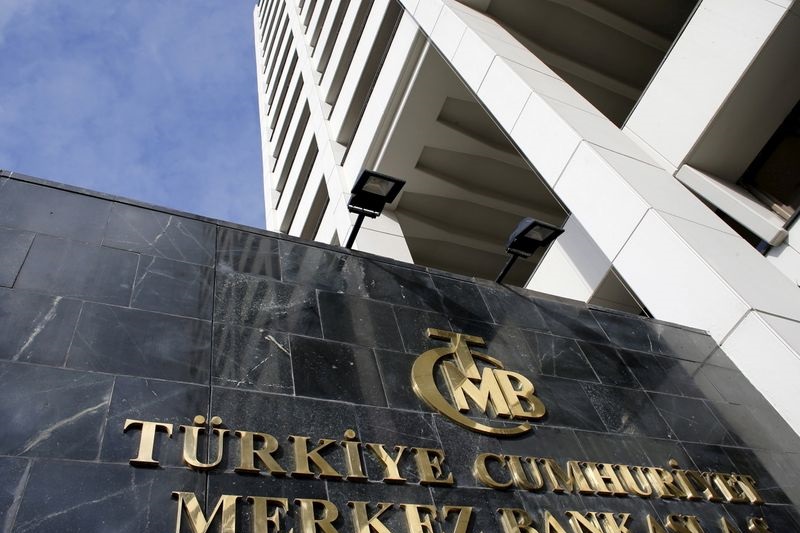(Bloomberg) -- Turkey’s central bank unexpectedly cut its benchmark rate on Thursday, risking further volatility in the lira amid high inflation and reflecting the long shadow cast by President Recep Tayyip Erdogan over monetary policy. The lira fell.
The Monetary Policy Committee reduced its key one-week repo rate by 100 basis points to 18%. All but one of the 23 economists surveyed by Bloomberg predicted the policy rate would be held at 19%.
Turkish inflation unexpectedly climbed to 19.25% last month, pushing the nation’s real yield below zero for the first time since October. But Governor Sahap Kavcioglu shifted its policy focus earlier in September to core inflation, which strips out volatile items like food and energy and is nearly 250 basis points lower than the headline figure.
That policy shift may have been inspired by Erdogan’s call for lower interest rates. The president promised cheaper borrowing costs and slower inflation starting this month, and not delivering on that could have cost the central bank governor his job. Kavcioglu, who kept the benchmark unchanged for a fifth meeting last month, is the fourth governor of the central bank since 2019, with the president firing his three immediate predecessors.
Erdogan, whose ruling AK Party has for decades based its electoral success on rapid levels of economic growth, preaches the unorthodox doctrine that higher interest rates spur prices rather than contain them. When the economy sank during the pandemic, support for Erdogan and his party fell.
The only analyst to predict a rate cut was Ibrahim Aksoy, the Istanbul-based chief economist at HSBC Asset Management Turkey. Aksoy, who ranks first among forecasters of Turkish rate decisions in two years of Bloomberg surveys, penciled in a rate cut of 50 basis points because of the governor’s recent emphasis on core and expected inflation. “In case of a surprise rate cut, the dollar/lira pair may test the record high level at 8.80,” he said before the decision.
Cutting now risks further turbulence for the lira, which has already weakened more than 16% against the dollar since the governor took over on March 20. Investors frequently criticized the central bank for being too quick to undo tightening and too slow to respond to risks, most recently in August 2018 when the lira lost about a quarter of its value.
The currency fell after decision and was trading 1.2% lower at 8.7606 against the dollar at 2:01 p.m. local time.
©2021 Bloomberg L.P.
